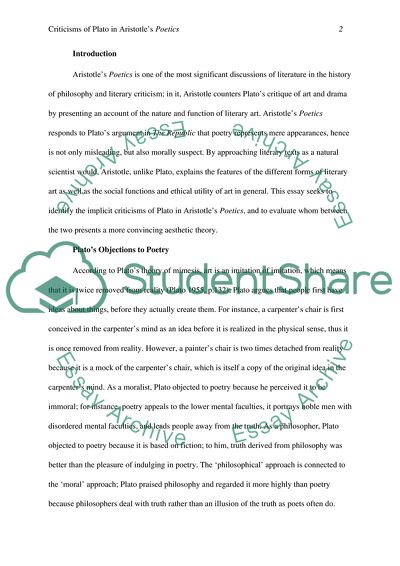Cite this document
(Criticisms of Plato in Aristotles Poetics Literature review Example | Topics and Well Written Essays - 1250 words, n.d.)
Criticisms of Plato in Aristotles Poetics Literature review Example | Topics and Well Written Essays - 1250 words. https://studentshare.org/philosophy/1842909-identify-the-implicit-criticisms-of-plato-in-aristotles-poetics-who-presents-the-more-convincing-aesthetic-theory
Criticisms of Plato in Aristotles Poetics Literature review Example | Topics and Well Written Essays - 1250 words. https://studentshare.org/philosophy/1842909-identify-the-implicit-criticisms-of-plato-in-aristotles-poetics-who-presents-the-more-convincing-aesthetic-theory
(Criticisms of Plato in Aristotles Poetics Literature Review Example | Topics and Well Written Essays - 1250 Words)
Criticisms of Plato in Aristotles Poetics Literature Review Example | Topics and Well Written Essays - 1250 Words. https://studentshare.org/philosophy/1842909-identify-the-implicit-criticisms-of-plato-in-aristotles-poetics-who-presents-the-more-convincing-aesthetic-theory.
Criticisms of Plato in Aristotles Poetics Literature Review Example | Topics and Well Written Essays - 1250 Words. https://studentshare.org/philosophy/1842909-identify-the-implicit-criticisms-of-plato-in-aristotles-poetics-who-presents-the-more-convincing-aesthetic-theory.
“Criticisms of Plato in Aristotles Poetics Literature Review Example | Topics and Well Written Essays - 1250 Words”. https://studentshare.org/philosophy/1842909-identify-the-implicit-criticisms-of-plato-in-aristotles-poetics-who-presents-the-more-convincing-aesthetic-theory.


